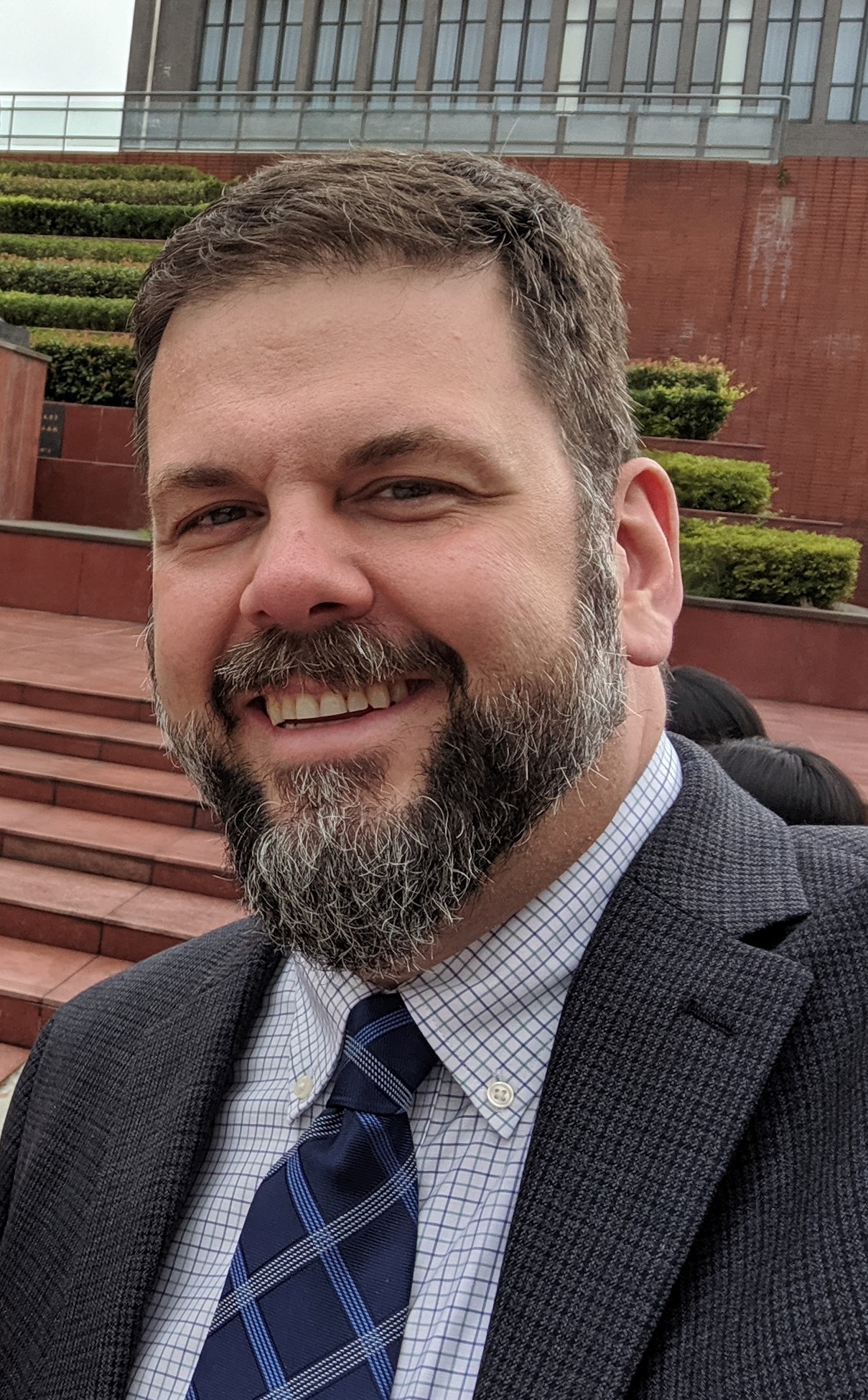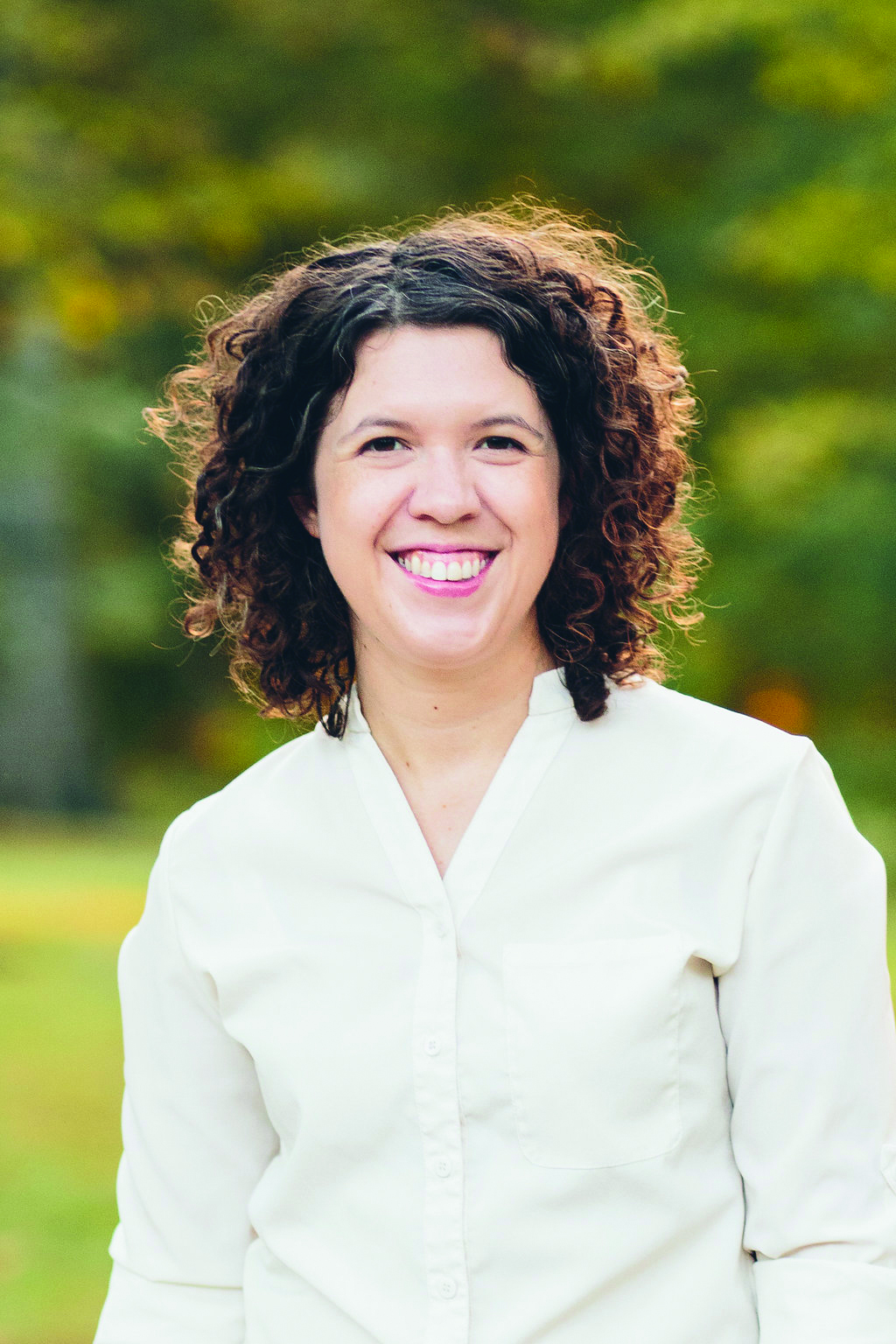In a ceremony held April 2 during Research and Innovation Week, librarians Ted Baldwin and Eira Tansey were recognized for their contributions to colleagues and to their fields. The Office of the Provost and the Office of Research jointly sponsor the awards to honor faculty who have demonstrated excellence in teaching, research and/or service.
Ted Baldwin, director of the Science and Engineering Libraries, was awarded the Faculty to Faculty Research Mentoring Award for UC Libraries.
What is your role in UC Libraries?
As director, I oversee operations and staff in several UC Libraries locations that focus on the sciences and engineering. Day to day, I support teaching and research through many individual consultations, class instruction sessions, managing library collections and connecting STEM users to other Libraries units such as Research & Data Services. I also engage my unit in discovering new ways that we can connect to priorities and goals of our partner colleges, Engineering and Applied Sciences (CEAS) and Arts & Sciences.
Can you talk a little bit about your mentoring role?
Mentoring at all levels has always been important to me. I try to be a supportive voice and listening ear for my UC colleagues. UC Libraries’ people are our most valuable asset and I try to help those I mentor to nurture and grow. I hope that this helps them feel a stronger connection to UC Libraries, UC and the broader library and information sciences profession.
What got you started in mentoring?
UC’s library faculty have a long tradition of mentoring, especially in support of new faculty. I began as a library faculty member in 2004 and greatly benefited from a variety of mentoring relationships through my career. I hope my efforts as a mentor ‘pay it forward’ and help my colleagues to develop their full potential.
What are some of the rewards of mentoring?
A mentoring relationship is an amazing experience. It is very much a two-way learning and growing process. Specific to library faculty, I love to hear my colleague’s new and fresh perspectives on the library and information science profession and the ways that this informs their own work.
What are your immediate professional plans/goals for the future?
I’m excited about two quite different initiatives now underway to expand the work of the Science and Engineering Libraries. First, we are building up efforts to showcase STEM special collections and archives, including those related to the long history of CEAS. Second, we continue to grow support for faculty/student entrepreneurship and innovation, including our cross-libraries work with the 1819 i-Hub’s Venture Lab. As we emerge from the current global situation, I hope both of these efforts can fully blossom and result in some interesting new directions.
Eira Tansey, digital archivist and records manager, was awarded the Faculty Excellence Award in UC Libraries.
What is your role in UC Libraries?
Like many librarians, I have a double job title – digital archivist/records manager. My digital archivist responsibilities revolve around working with born-digital archives at the Archives and Rare Books (ARB) Library. “Born-digital” archival records refer to those created digitally from the outset, in contrast to the analog materials you might find in boxes, a filing cabinet or an old leather-bound ledger. For example, I am working with staff in the President’s Office to get about 10 years’ worth of correspondence, speeches and reports off of a variety of CDs, shared network drives and the university’s web site. Part of my job involves learning how to make sure records that are created in electronic form today are still readable not just 100 years from now, but 20 years from now.
Over the last year, I began a major web archiving effort to target important UC history that exists across social media and various websites. The primary focus has been archiving webpages documenting the impact of the COVID-19 pandemic on the university, and student organization web sites. As a UC graduate myself (A&S ’08) I am very interested in how we can ensure more documentation of student life is represented in University Archives. I also work closely with library colleagues on digitization of our rare and unique special collections materials, which allows people from around the world to access our holdings even if they cannot visit the ARB Reading Room.
The records manager part refers to my work in managing the university’s records management program, which is authorized by UC’s Board of Trustees in order to fulfill the requirements of Ohio’s Sunshine Laws. I regularly meet with university staff, faculty and administrators to develop guidelines for how long they must retain their records, and whether those records have to be destroyed or transferred to University Archives at the end of their lifecycle. My work often brings me into contact with General Counsel, Internal Audit and UCit, giving me a fascinating “behind the scenes” look at how important issues in higher education play out across campus.
In addition, I have a birds-eye view of the most important university records that document the life and work of UC as it unfolds. These are the records I advise offices that they should transfer to University Archives, so we can ensure that the third century of UC’s history can be written and appreciated.
What is your current research focus?
Most of my recent research has focused on the effects of climate change on archives and archivists, the role of records within environmental regulation and the enforcement of record keeping laws.
I was a co-author on the first study to analyze the threats of climate change to U.S. archives based on a very limited data set of large research institutions. Building off that research, my collaborator (Penn State archivist Ben Goldman) and I received a grant in 2017 from the Society of American Archivists Foundation to create a comprehensive data set of U.S. archives that captured smaller institutions. I’ve used this data set to build several mapping tools for archivists to visualize potential natural disaster and climate change impacts to archives in their region. One of most gratifying moments was when a colleague in Florida told me he had used some of the data we compiled as part of a hurricane recovery effort to contact small community historical societies.
I also routinely dip back into other research interests related to the history of archives and libraries, and the varying levels of support (or not!) for cultural heritage across time and space. In this area, I’ve written things like a history of Cincinnati’s Carnegie libraries, a study of archivist job advertisements and the cycle of poverty endemic to archival work.
What led you to research this?
My research on archives and climate change came about when I saw a call for papers in 2015 on sustainability and libraries. I realized almost no other archivists I knew had really written very much on the topic, which shocked me. Archivists profess to be saving the past for the future, and yet here is a phenomenon unlike anything in our recent past, that threatens everything we want to believe about the future. I believe in Toni Morrison’s quote about writing what you want to read if it hasn’t been written yet, so I got to work.
The article I wrote for that journal has been the basis for much of my subsequent work, and all of it boils down to the idea that climate change is coming in some way, shape, or form regardless of where we live or where we work (webpage with embedded maps showing the impacts of climate change on archives: https://arcg.is/0GPvza). Therefore, archivists have a fundamental obligation to begin preparing for its impacts and adapting our practices and professional orientation so that we can continue to preserve our past for the future. This also means starting really difficult conversations, like what to do about archives in geographically vulnerable places that could face uninhabitable sea-level rise in a few decades.
For more on this topic:
- Archives and climate change for Research Data Access and Preservation (RDAP) Summit: https://youtu.be/vUjWq-jhvRY Green New Deal for archives: http://eiratansey.com/2020/07/30/a-green-new-deal-for-archivists/
- Coverage in VICE and Pacific Standard: https://www.vice.com/en/article/j5yg3g/climate-change-could-erase-human-history-these-archivists-are-trying-to-save-it and https://psmag.com/environment/saving-our-archives-from-climate-change
What are your immediate professional plans/goals for the future?
I’m really interested in learning new quantitative methods to apply to my research, so I’m considering taking advantage of UC’s tuition remission to go back for another degree. I also feel like I have a book in my career at some point – assuming I can find a single topic to sustain my interest for the time and effort it would take to write one!
Congratulations, Ted and Eira, on jobs well done!


